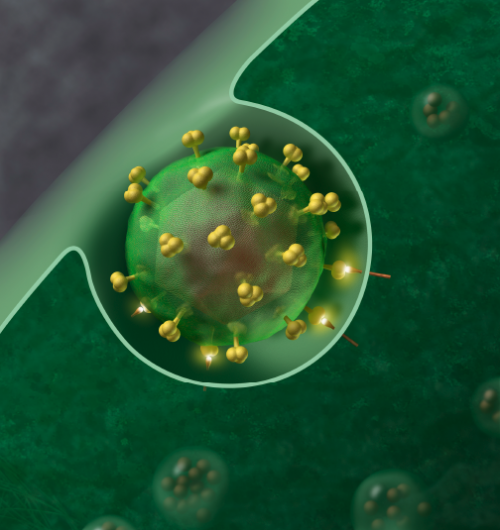Restricting HIV-1 infection

The HIV-1 capsid protein (CA) interacts with viral factors that support infection and host factors that restrict it. The host protein cyclophilin A (CypA) binds to CA and enhances the action of host restriction factors that block HIV-1 infection.
Christopher Aiken, Ph.D., and colleagues investigated how CypA potentiates the action of the restriction factor TRIM5alpha in African green monkey cells. They did not find evidence of a role for CypA in promoting binding of TRIM5alpha to the viral capsid or inhibiting reverse transcription of the viral genome.
Instead, the investigators observed a CypA-dependent reduction in the accumulation of nuclear HIV-1 DNA, suggesting that CypA promotes TRIM5alpha inhibition of HIV-1 nuclear import. They reported their findings in the journal PLOS ONE.
The authors propose that CypA uses a common mechanism involving interactions of the virus with nuclear pore components to potentiate restriction of HIV-1 infection by TRIM5alpha and other capsid-targeting inhibitors.
More information: Mallori Burse et al. Cyclophilin A potentiates TRIM5α inhibition of HIV-1 nuclear import without promoting TRIM5α binding to the viral capsid, PLOS ONE (2017).
Journal information: PLoS ONE
Provided by Vanderbilt University















